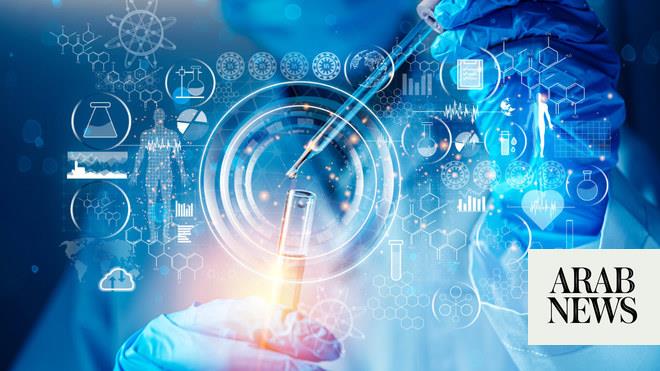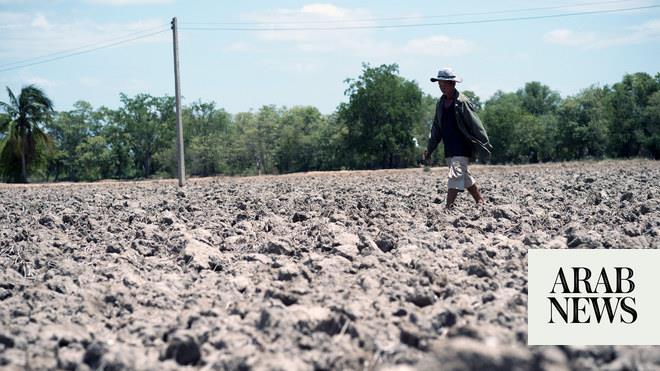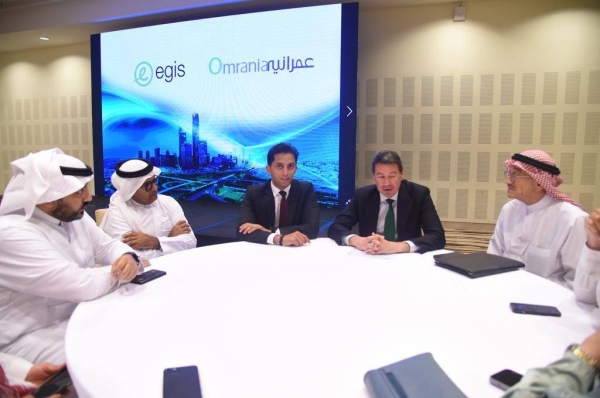
DUBAI: Saudi Arabia is not only the Middle East’s largest regional market for pharmaceuticals and vaccines, but also has been strategically investing in biotechnology-related sectors. The country’s genetic diversity and geographical climate provide ideal conditions for conducting complex studies and research.
It has also been clear that the Kingdom is committed to developing and training national talent in biotech research, development and innovation, while enabling a competitive and digital infrastructure.
The new National Biotechnology Strategy, unveiled by Crown Prince Mohammed bin Salman last week, is the latest shot in the arm for such fields as biomanufacturing, food, genomics, vaccine industries and plant optimization.
Localizing vaccine manufacturing and improving the health of Saudi citizens are among the key goals of the strategy. But that is just for a start.
The initiative aims to safeguard the environment, achieve food and water security, and solidify Saudi Arabia’s position as a global leader in the sector, according to the Saudi Press Agency.
Welcoming the announcement, Rabia Yasmeen, a senior consultant at Dubai-based strategic market research company Euromonitor International, told Arab News: “Saudi Arabia continues to seek new areas of economic diversification as part of its Vision 2030 plan, which is now only six years away, and biotechnology can bring immense value across various pillars for the Kingdom.
Localizing vaccine manufacturing and improving the health of Saudi citizens are among the key goals of the National Biotechnology Strategy. (Shutterstock)
“Not only does it have the potential to address and to treat a wide range of diseases, but it can inherently improve the quality and longevity of human life.”
At its most basic, biotech is a process utilizing cellular and biomolecular processes to develop technologies and products, with a history dating back more than 6,000 years and boasting produce including bread and cheese.
More recently, it has grown ties to the development of therapeutic proteins and drugs constituted through genetic engineering to treat a range of ailments.
Saudi Arabia’s hope is to harness biotech for health and food needs, with a focus on plant optimization to help address one of the desert country’s primary concerns as its population continues growing, namely, food self-sufficiency.
Enhancing agricultural productivity with improved yields can be a game-changer for an import-reliant economy. (Shutterstock)
“Enhancing agricultural productivity with improved yields can be a game-changer for an import-reliant economy,” Yasmeen said, referring to the Kingdom.
“But it can also lead to establishing high degrees of research for food security practices in the Kingdom. With possibilities of food innovation, one can only imagine the food varieties that can be produced in Saudi Arabia that can impact consumer health in a positive way.”
All of which will only be aided by Saudi Arabia’s push into genomics. Seen as medicine’s new frontier, the field focuses on the interaction among genes and their interactions with environments.
Yasmeen said that genomics and precision medicine can be the next key areas of focus for the government, adding that Saudi Arabia’s large public healthcare sector coupled with the cost of medical services is an emerging source of concern.
“Genomics technology can offer the innovation that is needed to manage these costs,” she said.
“But, more importantly, it can help Saudi Arabia tackle challenges in its healthcare landscape such as high obesity levels, develop medicines unique to the Kingdom’s genome profile, as well as develop new genome profiles that can optimize the population’s productivity and health.”
According to Jassim Al-Shammari, founder of the think tank Saudi Industrialists and Exporters Platform, the National Biotechnology Strategy will be a pivotal in the development of Saudi Arabia’s economy, resulting in a “strong pharmaceutical industry in the Kingdom.
“It will reduce dependence on imports and increase self-sufficiency in meeting the needs of domestic markets, enhancing economic autonomy and reducing dependence,” he told Sabq, an electronic newspaper in Arabic.
Alongside economic diversification and value generation in healthcare and food industries, Saudi Arabia’s move into biotech offers “interesting prospects” elsewhere. (Shutterstock)
Al-Shammari added that the “new strategy promoted digital transformation and technological advancement in pharmaceutical industries, where biotechnology could be used to improve industrial processes and develop new, effective and safe medicines.”
A report published last year by Strategy & Middle East, part of PwC, indicated that Saudi Arabia boasts significant potential to become a world leader in biotechnology, addressing domestic health and food needs while concurrently building new markets for itself.
“The current state of the Saudi Arabian biotech industry could be described as ‘nascent’,” Claudia Palme, senior executive adviser with Strategy & Middle East, told Labiotech, a European biotech news website.
“(But) in its economic transformation program, Saudi Arabia’s focus is on creating a suitable environment for evolution of a broader biotech sector, with a productive interplay between public and semi-public institutions, and first initiatives of private companies in the field.”
These efforts include a big push not only within the Kingdom, but also the wider Gulf region, to develop a series of renowned academic institutions.
They include King Abdullah University of Science and Technology, King Saudi University, King Abdulaziz City of Science and Technology, King Abdullah Institute of Medical Research, and King Faisal Specialist Hospital and Research Center.
By the middle of last year, the Kingdom had pumped some $3.9 billion into research and development since 2021.
Additionally, Saudi Arabia has been focused on research funding and the development of state-of-the-art biotech infrastructure, together with what Palme described as a “systematic review of regulations” surrounding both business and biotech.
As of mid 2023, Saudi Arabia had pumped some $3.9 billion into research and development since 2021, with greater focus on the development of state-of-the-art biotech infrastructure involving its leading universities such as the King Abdullah University of Science and Technology. (Instagram: @kaust_research)
According to Saudi Vision 2030, almost 11,000 new job opportunities will be created as a result of the strategy, reaching 55,000 in the following decade.
Economically, early projections suggest it will contribute $34.6 billion — or 3 percent — to non-oil gross domestic product within the same time frame, building on the acceleration of non-oil growth that Saudi Arabia has experienced since the launch of Vision 2030.
The International Monetary Fund’s most recent annual review says Saudi Arabia has been averaging 4.8 percent growth in non-oil revenues.
According to Faisal Al-Azmeh, an analyst at Goldman Sachs Research, “since the launch of Vision 2030, Saudi Arabia has made meaningful strides in growing the non-oil economy through various developments and investments across strategic economic sectors.”
Reflecting the opportunities arising in the Kingdom, recent reports in The Wall Street Journal suggest that biotech startups are already tapping Saudi Arabia for funding.
In this photo posted on social media in March 2023, KAUST Ph.D. student Asrar Damdam is seen at the Sensors Lab, researching on food preservation technologies and food waste prevention. (Instagram: @kaust_research)
Ali Siam, chief business officer of Rubedo Life Sciences, a California-based longevity-focused startup, told the US newspaper that the Kingdom and the wider Gulf had “become much more relevant within the biotech ecosystem.”
Euromonitor International’s Yasmeen notes that alongside economic diversification and value generation in healthcare and food industries, Saudi Arabia’s move into biotech offers “interesting prospects” elsewhere.
“For instance, the Kingdom’s advancing production of biofuels, renewable energy sources and greener energy alternatives,” which she said would enable Saudi Arabia to push back against critics of its reputation as one of the world’s biggest oil producers by “leading the global energy story.”
Speaking to Arab News from Istanbul, Ussal Sahbas, founder of a boutique policy consultancy in Turkiye, described the National Biotechnology Strategy as “not only important for health, but also for areas including materials, manufacturing and agriculture that are crucial for the future of the Middle East.
“Therefore, biotech should be key component of technological diversification that Saudi Arabia is pursuing within its 2030 Vision,” he said.












